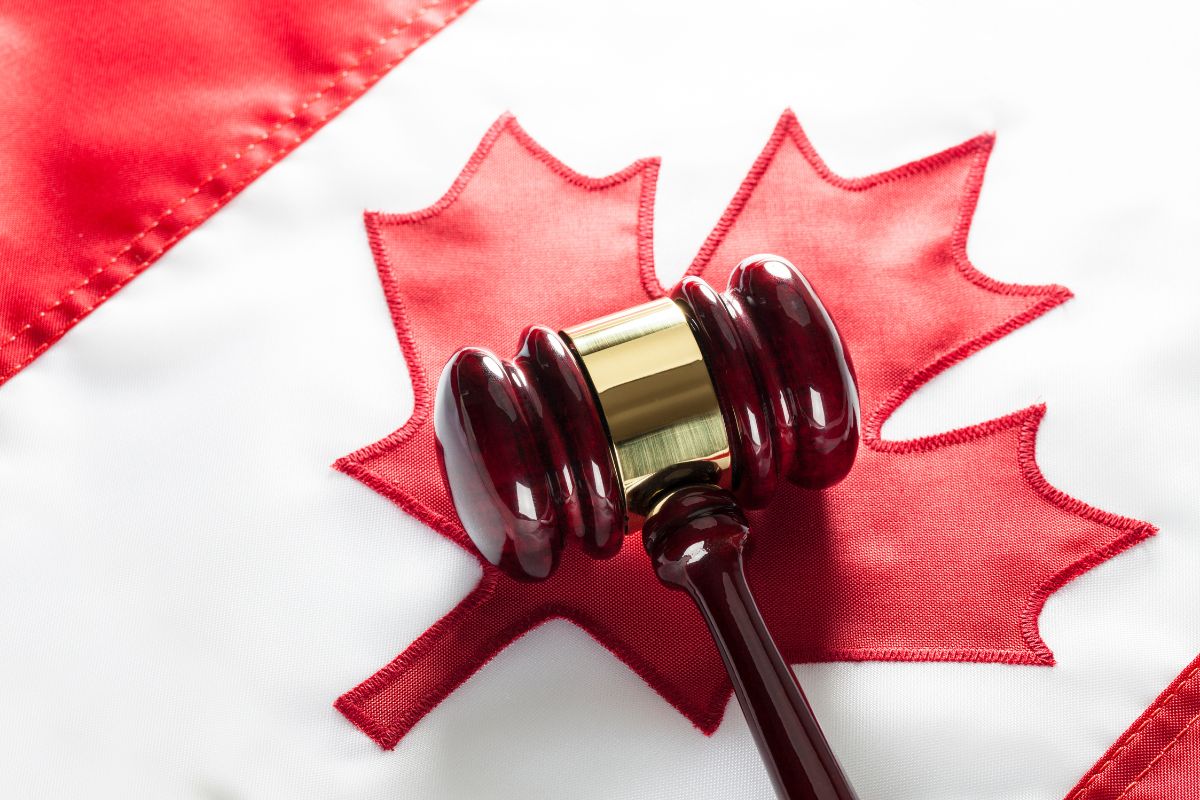High Treason is covered under 61 of the Criminal Code of Canada. High treason occurs when a person commits an act that involves attempting to overthrow the government or encouraging others to do so, by use of force, violence, or unlawful means. Related but distinct national-security offences include sedition and intimidating Parliament.
High treason is a straight indictable offence.
Examples
Some examples of a charge of high treason may include the following:
- Leaking or providing sensitive information regarding national security-related military operations to a foreign adversary. This kind of conduct may also overlap with Canada’s sabotage laws.
- plotting to harm His Majesty the King (previously Her Majesty the Queen), or making threats that could also engage the offence of uttering threats.
- aiding an enemy at war with Canada
Defences
The defences available to a charge of high treason are entirely dependent on the facts of your case.
However, some defences to a charge of high treason may include:
- The accused was wrongly identified as the person who committed high treason
- The accused was not intending to leak or disseminate sensitive information, and it was a technical error or a mistake
- The accused wrote a fictional or creative piece of literature which was mistaken for a plan or plot to commit violence against the government
Punishment
A charge of high treason is a straight indictable offence, which entails a maximum punishment as follows:
- Imprisonment for a term of life imprisonment.
Whether you intend to plead guilty to a charge of high treason, it is important to consult a lawyer prior. There may be factors which apply to your punishment/sentencing which are relevant and important for consideration, which may result in a lesser punishment. This depends on the unique circumstances of each matter and is determined on a case-by-case basis. Therefore, it is important to consult a lawyer.
Overview of the Offence
According to s. 46(1), 47(1) of the Criminal Code:
Section 46(1) of the Criminal Code of Canada outlines three different situations that could constitute high treason within Canada.
Firstly, it states that anyone who attempts to harm or kill the Queen, or imprisons or restrains her, will have committed high treason.
Secondly, it is considered high treason to engage in an act that is preparatory to levying war against Canada.
Lastly, if someone assists an enemy at war with Canada or takes up arms against the Canadian Forces, they will be guilty of high treason. The crime of high treason is one of the most serious crimes in Canadian law, and as such, the penalties for those found guilty of this crime are severe.
In cases where someone is charged with high treason, a trial by jury is mandatory, and the accused is presumed innocent until proven guilty beyond a reasonable doubt. Additionally, anyone charged with high treason has the right to a fair trial and the ability to defend themselves against the charges they face.
The punishment for high treason is:
- An indictable offence and liable to a term of life imprisonment.
The Guilty Act (Actus Reus)
The actus reus for a charge of high treason under s. 46(1), 47(1) is established by proof, beyond a reasonable doubt, of the following:
- The accused killed or attempting to kill the Canadian monarch, levied war against Canada or engaged in any act that prepares for such an action, and aided an enemy at war with Canada or any country where Canadian armed forces are in conflict
The Guilty Mind (Mens Rea)
The mens rea for a charge of sedition under s. 46(1), 47(1) includes proving, beyond a reasonable doubt, that:
- the accused know who the Canadian monarch was, and what their actions in aiding an enemy were likely to cause harm and/or impede the Canadian forces in conflict.
Defences
How to Beat a high treason Charge
Every case is different. The availability and strength of any defence depend entirely on the specific facts of your case. The strength of any available defence rests on the evidence against you and the precise details of the allegations. However, the following are some common defences that may be used when fighting a Sedition charge:
Factual innocence
A strong defence against a charge of high treason is to maintain that you are factually innocent. If you can show that the facts and the evidence do not support that you did not commit the elements of the offence required for high treason, then you may have a defence that you were factually innocent.
Lack of Intent/Mistake
Depending on the context, if you can show that you were not seeking to disseminate confidential information in a manner that was deemed high treason, then this may be a defence for high treason based on lack of mens rea. For you to be convicted of high treason.
Identity
Depending on the circumstances of your case, a possible defence to a charge of high treason may be to raise an identity defence. In this case, for this defence to be raised successfully, you will have to prove that you were not the person who committed the prohibited acts.
Any applicable Charter defences
The Charter sets out your rights and freedoms before and after your arrest. If the police fail to abide by these rights deliberately or inadvertently, it could aid in your defence. If any of your Charter rights have been violated before or after your arrest, you may be able to have some or all of the evidence that the Crown is relying on to secure a conviction excluded under s. 24(2) of the Charter.
Punishments
The Criminal Code provides for a possible maximum term of life imprisonment for those convicted of a high treason charge.








